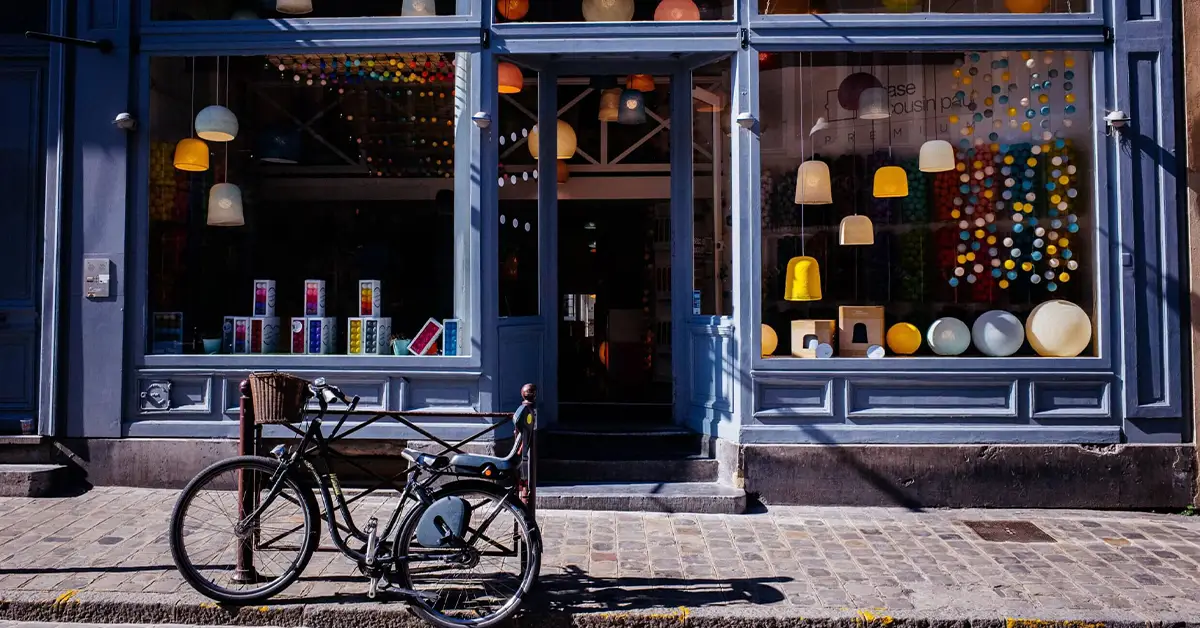Did you know 54 per cent of consumers say that over the next year, they’re likely to study a product online and buy it in-store? Of course, what is intended to be a single purchase can be joined by a last-minute buy with the right marketing. In the world of retail, making a long-term impression and encouraging customers to make an extra purchase is crucial, which is why retail point of sale are one of the most effective tools for achieving this goal.
In this article, we delve into the significance of displays in any retail environment, identify the typical elements of an effective retail point of sale , and distinguish between POS and POP displays.
Why displays are important in any retail environment
The retail industry is highly competitive, and companies must constantly respond to the needs of their customers.
Retail Point of sale (POS) displays play an integral role engaging customers, enhancing the shopping experience, and encouraging impulse purchases.
When strategically positioned in high-traffic areas, this type of display ensures key products are visible to customers.
Well-designed POS displays can also prompt impulse purchases – when customers buy additional items that have caught their eye.
Moreover, displays in retail environments are particularly useful in promoting cross selling and upselling by highlighting complementary products that might appeal to customers.
When combined with attractive seasonal and promotional designs, these displays can help to keep your store ahead of the competition.
What is a typical Retail point of sale display?
POS displays can take various forms, and we regularly work with retail clients to create promotional materials that serve multiple purposes. However, they primarily seek to enhance the customer experience and boost sales.
Some of the most popular types of POS displays and promotional materials include:
Counter displays
Found near the checkout, these displays are ideal for highlighting smaller, less expensive items to customers, such as toiletries, socks, sweets and other products that can be easily picked up and placed into their baskets.
Brochures
Located near the point of sale, brochures are perfect for providing detailed information about products, services and any promotions and seasonal offers.
Flyers
Flyers can be handed to customers at the point of sale to inform them of upcoming offers or sales they can take advantage of. This can help boost sales while they are in store or encourage them to return.
Catalogues
Often available at the point of sale, catalogues allow customers to browse a wide range of products in store and can serve as a reference for future purchases.
What makes a good retail point of sale display?
Any good point of sale display starts with careful thought, planning and attention to these key areas:
Design
Your POS display should immediately grab the customer’s attention, meaning it needs to stand out and be visually appealing. This includes using bold colours, graphics, imagery and fonts that all align with your brand identity.
Message
The message should be straight to the point so that customers can instantly understand the value and benefits of your products and offers.
Placement
Your POS may look great, but if it’s not located in a high-traffic area of your store, your customers will never see it. Strategically placing your POS will help to maximise visibility and customer engagement, so it is important to understand how customers move within the space.
What is the difference between a POS and a POP display?
Point of sale (POS) displays are specifically designed to be placed near the checkout, where the final transaction occurs. The goal of POS displays is to initiate impulse purchases, cross selling, and upselling. These types of displays are usually for smaller items that can be easily picked up and added to the customer’s basket in the moments before checking out.
Point of purchase (POP) displays encompass more in-store marketing materials and strategies. These displays can be found throughout the store, and their aim is to point customers to specific products or areas. The focus is to create a visually exciting and appealing shopping experience and enhance the overall customer experience.
Although the difference between these two terms is subtle, differentiating between POS and POP displays is vital to ensure retailers implement the right marketing strategy.
Learn more about POS Retail Displays
Retail POS displays are indispensable tools for enhancing the shopping experience and boosting sales in any retail environment.
If you are interested in learning more about how we can help with your Point of Sale Printing & Design, then don’t hesitate to get in touch with our team today.
Call us on 0115 951 2468 or send an email to team@birchprint.co.uk
More on POS design from the experts at Birch
How point of sale boosts retail sales
What is point of sale printing
What is point of sale material
Benefits of point of sale promotion
Point of sale marketing (POSM)




